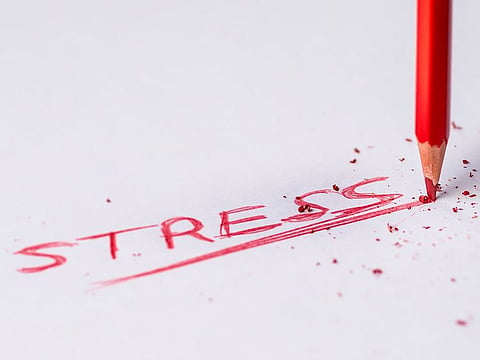At a time of extreme stress and expectations, tap into some inner resilience
Make those tweaks at the workplace and at home to build an internal defense system

Resilience is a quality within each of us. It’s influenced by beliefs, experiences, outlook, mental state, and by how we respond to setbacks. We can all build positive mental habits… and increase our resilience.
We experience all kinds of events right through our lives. No one can entirely avoid pain or difficulty. At some point, they will present themselves as part of everyday living. We need to know how to meet difficulties and move on.
Draw on inner strengths
Knowing you have an inner strength enabling you to bounce back from difficulty can comfort and empower. Instead of being fearful and uncertain, you know you have the fortitude to survive. This will prove useful time after time.
Resilience is about becoming a stronger person because you overcame obstacles. It’s also an asset when safeguarding your wellbeing and that of your employees.
Fast track to burnout
Today’s business world encourages an always-on lifestyle with 24x7 connectivity. You might be expected to work over weekends or stay late during busier periods. Might your organisation be following a more-for-less approach, demanding impossible targets?
Trying to meet these expectations can lead to stress, as you struggle with constant pressure, perhaps finding yourself on the road to burnout.
If you’re unsure about changes affecting your role within the business, this can lead to increased levels of stress, which are harder to control without having the answers you need.
Resilience is key to being adaptable, viewing change as an opportunity and learning from unsuccessful ventures. It isn’t simply about recovering quickly - consequential learning is just as valuable. Knowing there could be setbacks and preparing for them is a huge part of resilience.
Build relationships
Connect with people you trust. Being able to rely on people and knowing they’re there for you can prove vital in difficult times.
Learn from crises
When things go wrong, learn from what happened: don’t switch to ‘victim’ mode. Being able to identify the positives from a situation will make you wiser and tougher.
Change is part of life
Nothing stands still - that’s life. Resisting change isn’t an option. At some point, you must face it. Acknowledging and accepting change is the first step.
Focus on goals
Never lose sight of where you want to be. Individuals or events may take priority sometimes, but remember what you want and why you want it.
Take control
You’ll feel better when you take control of situations, however insignificant. Others may feel helpless and unable to deal with them, suffering stress. Don’t be like them, be in command.
Keep things in perspective
Don’t let one bad situation affect your view of life. It’s normal to feel disappointed, but don’t be defeated. Life has plenty to offer - good and bad; keep this in mind when riding out the bad.
Practise mindfulness
Mindfulness helps change the way you think and feel about things. Stress is often caused by worrying about the future or over-analysing the past. Mindfulness teaches us to live in the present, with nothing to think about beyond being here.
Look after yourself
Eat and sleep well. Exercise regularly. Take time out for things you enjoy. Mix with people who make you feel good. Neglecting self-care makes you feel negative.
Resilient living
Being resilient means being able to bounce back. It stimulates your ability to:
• Be willing and able to adapt;
• Keep inspiring and motivating others;
• Encourage and collaborate with your team; and
• Embrace and respond positively to changes
It enables you to take control of your mental and physical health and wellbeing and determines how you react to events outside your control. Resilience is the best defence for you and your organisation…

- Carole Spiers is Chair of the International Stress Management Association UK (ISMAUK) and founder of International Stress Awareness Week. ISMAUK is hosting a Global Stress and Wellbeing Summit from November 2-6.
Sign up for the Daily Briefing
Get the latest news and updates straight to your inbox







